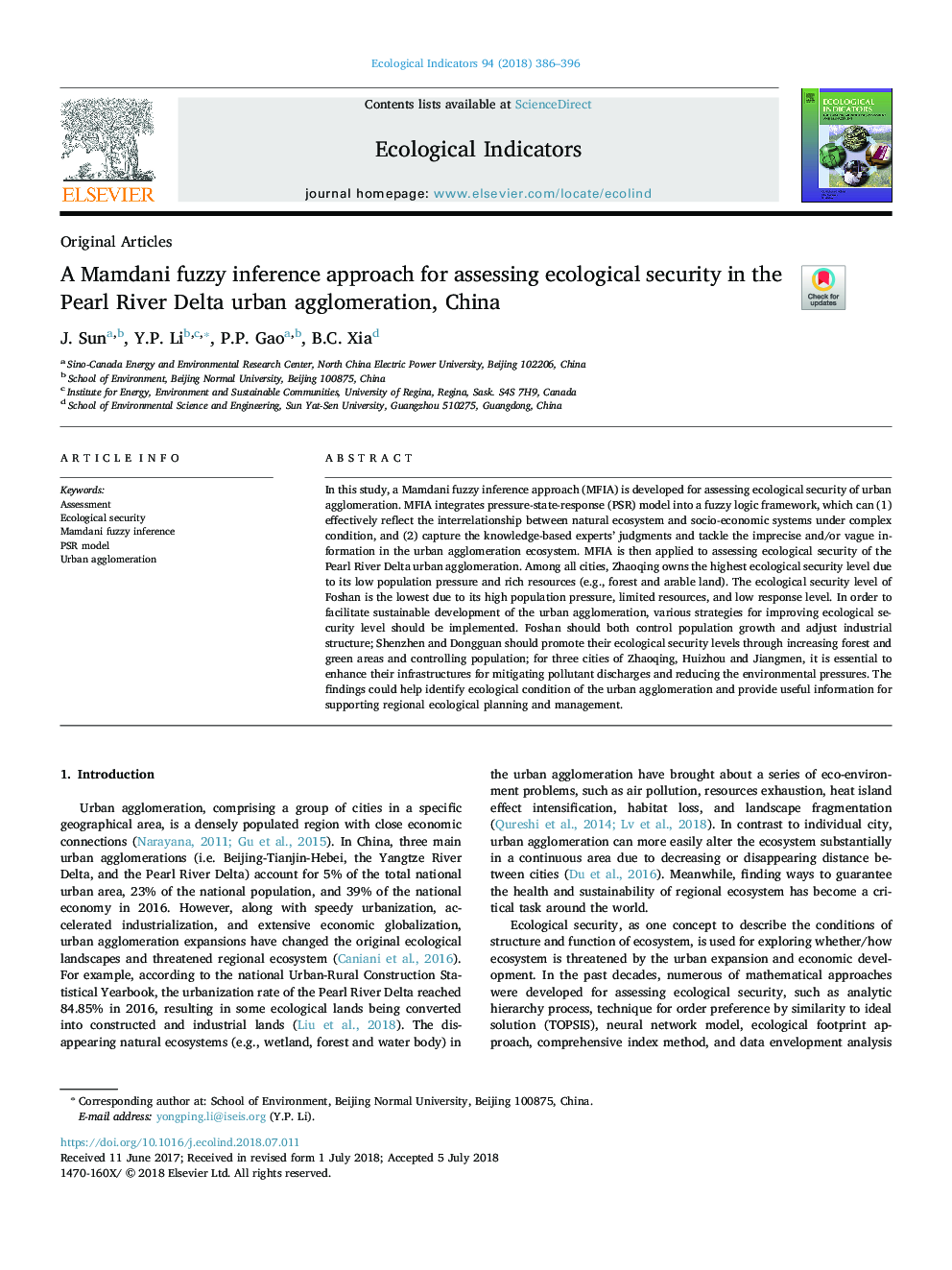| Article ID | Journal | Published Year | Pages | File Type |
|---|---|---|---|---|
| 8845081 | Ecological Indicators | 2018 | 11 Pages |
Abstract
In this study, a Mamdani fuzzy inference approach (MFIA) is developed for assessing ecological security of urban agglomeration. MFIA integrates pressure-state-response (PSR) model into a fuzzy logic framework, which can (1) effectively reflect the interrelationship between natural ecosystem and socio-economic systems under complex condition, and (2) capture the knowledge-based experts' judgments and tackle the imprecise and/or vague information in the urban agglomeration ecosystem. MFIA is then applied to assessing ecological security of the Pearl River Delta urban agglomeration. Among all cities, Zhaoqing owns the highest ecological security level due to its low population pressure and rich resources (e.g., forest and arable land). The ecological security level of Foshan is the lowest due to its high population pressure, limited resources, and low response level. In order to facilitate sustainable development of the urban agglomeration, various strategies for improving ecological security level should be implemented. Foshan should both control population growth and adjust industrial structure; Shenzhen and Dongguan should promote their ecological security levels through increasing forest and green areas and controlling population; for three cities of Zhaoqing, Huizhou and Jiangmen, it is essential to enhance their infrastructures for mitigating pollutant discharges and reducing the environmental pressures. The findings could help identify ecological condition of the urban agglomeration and provide useful information for supporting regional ecological planning and management.
Related Topics
Life Sciences
Agricultural and Biological Sciences
Ecology, Evolution, Behavior and Systematics
Authors
J. Sun, Y.P. Li, P.P. Gao, B.C. Xia,
